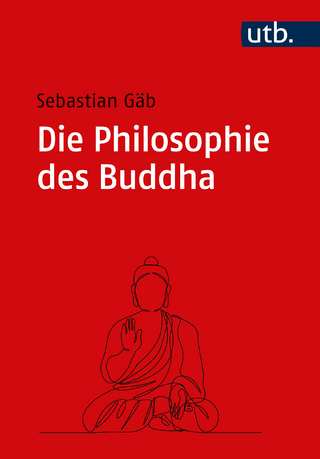
Buddhist Philosophy of Consciousness
Brill (Verlag)
978-90-04-44089-0 (ISBN)
Buddhist Philosophy of Consciousness brings Buddhist voices to the study of consciousness. This book explores a variety of different Buddhist approaches to consciousness that developed out of the Buddhist theory of non-self. Topics taken up in these investigations include: how we are able to cognize our own cognitions; whether all conscious states involve conceptualization; whether distinct forms of cognition can operate simultaneously in a single mental stream; whether non-existent entities can serve as intentional objects; and does consciousness have an intrinsic nature, or can it only be characterized functionally? These questions have all featured in recent debates in consciousness studies. The answers that Buddhist philosophers developed to such questions are worth examining just because they may represent novel approaches to questions about consciousness.
Mark Siderits, Ph.D. (1976, Yale), is retired Professor of Philosophy, Seoul National University. He has published widely on the intersection between Buddhist philosophy and analytic metaphysics, including Buddhist Philosophy and Personal Identity (Ashgate, 2015). Ching Keng, Ph.D. (2009, Harvard), is Associate Professor at National Taiwan University. His main interest is to explore how studies of Chinese Buddhist philosophical texts could contribute to a better understanding of Buddhist philosophy as a whole. John Spackman, Ph.D. (1996, Yale), is Associate Professor of Philosophy, Middlebury College. His work focuses on contemporary philosophy of mind and its intersections with Buddhist philosophy. His publications include articles on nonconceptual experience and Madhyamaka philosophy.
Notes on Contributors
Introduction
Part 1: Conceptualism and Nonconceptualism
Introduction to Part 1
1 Knowing Blue: Ābhidharmika Accounts of the Immediacy of Sense Perception
Robert H. Sharf
2 Nonconceptual Awareness in Yogācāra and Madhyamaka Thought
John Spackman
3 Turning Earth to Gold: the Early Yogācāra Understanding of Experience Following Non-conceptual Cognition
Roy Tzohar
Part 2: Meta-cognition
Introduction to Part 2
4 Whose Consciousness? Reflexivity and the Problem of Self-Knowledge
Christian Coseru
5 Should Mādhyamikas Refute Subjectivity? Thoughts on what might be at stake in debates on self-awareness
Dan Arnold
6 Self-Knowledge and Non-self
Mark Siderits
7 The Genesis of *Svasaṃvitti-saṃvittiReconsidered
Toru Funayama
8 Dharmapāla on the Cognition of Other Minds (paracittajñāna)
Shinya Moriyama
Part 3: Mental Consciousness in East Asian Buddhism: MSF
Introduction to Part 3
9 Mānasa-pratyakṣa as the Perception of Conventionally Real (prajñaptisat) Properties – Interpreting Dignāga’s mānasa-pratyakṣa based on Clues from Kuiji
Ching Keng
10 Mental Consciousness and Its Objects
Zhihua Yao
11 Vasubandhu’s Theory of Memory: a Reading based on the Chinese Commentaries
Chen-kuo Lin
Index
| Erscheinungsdatum | 20.11.2020 |
|---|---|
| Reihe/Serie | Value Inquiry Book Series / Cognitive Science ; 354 |
| Verlagsort | Leiden |
| Sprache | englisch |
| Maße | 155 x 235 mm |
| Gewicht | 719 g |
| Themenwelt | Geisteswissenschaften ► Philosophie ► Östliche Philosophie |
| Geisteswissenschaften ► Religion / Theologie ► Buddhismus | |
| ISBN-10 | 90-04-44089-5 / 9004440895 |
| ISBN-13 | 978-90-04-44089-0 / 9789004440890 |
| Zustand | Neuware |
| Haben Sie eine Frage zum Produkt? |
aus dem Bereich


